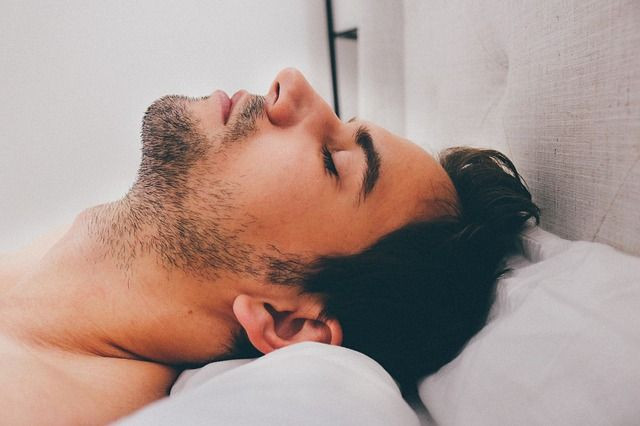What Are Some Things I Can Do Just Before Going To Bed To Get Better Sleep?


Improving sleep seems to be a pretty common goal. Turn on a TV and you’ll see dozens of ads; Lunesta commercials are my personal favorite. I’ve always wanted that electric green butterfly to visit me. Good sleep is so delicious that folks are willing to chance aggressiveness, confusion, hallucinations (the good kind?), risk of suicide in depressed patients, unpleasant taste, and dizziness…well, at least the people in the ad sure are sleeping soundly.
What is it about a quality night’s sleep that makes people dream these risks might be worth it?
Sleeping less than your body needs, even by an hour or two a night, has several major consequences.
Adequate sleep is necessary for optimal brain function. During sleep, the brain commits memories to long-term storage and forms new connections. Lack of sleep affects your mood and decision-making; too little sleep and you may find yourself irritable and prone to bad choices.
The cardiovascular system needs regular periods of sleep in order to function optimally. And increased risks of heart disease, heart attack, high blood pressure, and stroke are all associated with too little sleep.
Sleep deprivation is also a serious public safety risk. The American Academy of Sleep Medicince estimates that 20 percent of people injured in car crashes are directly related to driver fatigue.
During exercise, the body’s lymphatic system clears out waste products produced from exertion, keeping the body healthy and fit. New research indicates that the brain may have its own system to perform the same function, but only while we sleep. This may accelerate neurodegenerative diseases (Alzheimer’s, Parkinson’s) and contribute to generalized signs of aging.
In addition to the health risks, not sleeping enough will make it much harder to achieve your fitness goals. Short amounts of sleep decrease your ability to regulate your appetite and are associated with obesity.
Sleep is important for the production of growth hormone. It is difficult to overstate the importance of growth hormone for anyone looking to increase their fitness.
Growth hormone promotes muscle building and fat loss. It works with testosterone to build muscle. GH helps to regenerate/strengthen our bones and connective tissue crucial to support increased muscle size and strength. GH appears to affect every organ in the body, has been shown to support protein synthesis, a positive nitrogen balance, increased amino acid uptake, lipolysis (fat breakdown), stimulate cartilage growth, and enhance immune cell function.
Growth hormone is primarily produced during the deepest sleep phase. Up to 70 percent of growth hormone secretion in adult men comes during this period. We need to get to that stage if we want to see success from our training.
With all that in mind, I wholeheartedly agree with the drug makers that the satisfaction derived from a deep, quality night’s sleep is worth taking significant steps to achieve, but popping a pill isn’t the way to go.
A handful of times during my MLB career, after night games and before day games, I took the drug Ambien. Let me just say, that sh-t is dreamy. I can look back and authentically say that my experience was lovely. On those nights I don’t remember falling asleep, waking up during the night or at all for that matter. That butterfly, however, never did come land on me, unfortunately.
For those of us training or trying to be healthier and looking to improve sleep, I suggest the following lifestyle adjustments.
Establish a relaxation routine leading up to bedtime. Read, meditate, listen to quiet music, whatever you do that helps you chill, do it starting a few hours before you go to sleep. For me, a long shower is helpful.
I stressed drinking tons of water in a recent post, but if you want to sleep well, cut off the fluids two hours before you hit the pillow. This step will help prevent those sleep interrupting, middle-of-the-night bathroom trips. Your blanket is cozy; the walk to the toilet isn’t.
Regular exercise has been shown in numerous studies to improve sleep quality, but I suggest eliminating late night workout sessions. Training increases your energy, and a spike in adrenaline is not conducive to a deep, satisfying slumber. Aim to hit your last set four hours before sliding comfortably under your top sheet.
Here comes the advice that I don’t follow closely enough, but I know works for me when I do. When I work later in the evening, I make the trade off of sharper, more alert mind in exchange for a less productive sleep by reaching for a cup of joe. Life is a give and take, I suppose. Coffee in the morning tends to work well for most people, but as soon as the clock strikes noon, if sleep is the most important factor, avoid caffeine in foods and drinks. Caffeine interferes with the deeper stages of sleep, so even small amounts found in chocolate and some desserts should be avoided.
I’m a pretty ambitious guy and my mind is fairly active. I have ideas that pop frequently into my head as well as issues that have come up for me throughout the day. I have successfully used a legal pad and a pen to scribble thoughts down before bed, but more importantly, if I wake up in the middle of the night with a thought, I can scribble it down and fall back asleep. I’m essentially making a deal with my brain: “I’ll get this down on paper and you can have permission to not think about this, dig?”
This answer is for general informational purposes only and is not a substitute for professional medical advice. Always seek the advice of your doctor before starting or changing a treatment. Quora users who provide responses to health-related questions are intended third-party beneficiaries with certain rights under Quora's Terms of Service.
More From Quora:
Published by Medicaldaily.com



























